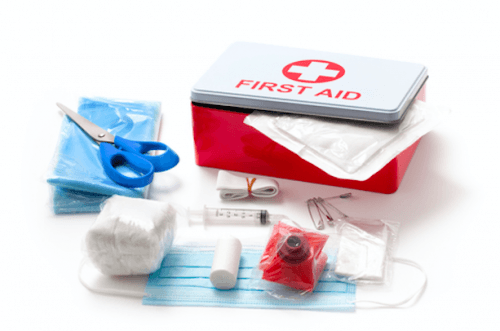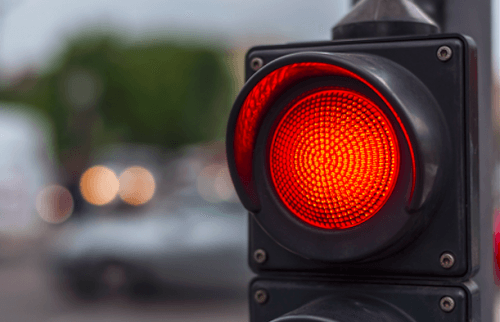
With the remnants of Typhoon Songda quickly approaching the BC South Coast, it is probably a good idea to start preparing for the series of storms headed our way.
The three separate rain and wind storms, set to strike over a five-day period, are expected to bring winds up to 80 hm/hr and 200 to 300 mm of rain in parts of the South Coast.
“As each storm develops and approaches the coast, details concerning the precise storm track and intensity will become clearer,” reads an updated statement by Environment Canada.“Weather warnings will very likely be issued for multiple regions throughout the next several days beginning on Wednesday, as the first storm approaches.”
See also
- Up to 10 mm of rain per hour during first storm overnight in Metro Vancouver
- Typhoon Songda remnants fueling most powerful of three storms set to hit Metro Vancouver
- 46 cm of snow to fall on Whistler Blackcomb during Saturday's big storm
- BC to enjoy mild winter, rest of Canada to be crushed with cold
In late-August 2015, the Lower Mainland was hit hard by a storm and many residents were left without power for several days. Most did not expect the storm to be as bad as it was, but it does serve as a valuable lesson to not take weather warnings lightly.
Here are 10 essential tips to get you prepared for this week’s storm:
1. Flashlights and extra batteries
Doesn’t look like the rain is headed our way, but @EC_BCweather says it is! Flashlights & emergency supplies at the ready! #BCstorm pic.twitter.com/whiAuMu5AT
— PreparedBC (@PreparedBC) October 12, 2016
When the power goes out, you’re going to need a couple of flashlights handy. Keep flashlights in easy-to-access places around your home and be sure to check if they are working before you need to use them. Avoid using candles, because they can be a fire hazard. BC Hydro spokesperson Simi Heer also suggests having a battery-operated radio for news and alerts updates.
2. Food and water for at least 72 hours
You should be prepared with at least three days worth of food and water stored in your home. With no power, you won’t be able to use appliances and the storm can cut off your home’s water supply.
It may not be as easy as you think to run out of your house and grab some takeout during a power outage, so it’s best to be stocked up with non-perishable snacks and food items just in case.
While may sound like common sense, never bring your barbeque indoors.
3. Blankets and warm clothes
Things get chilly when the power goes out. Make sure you have blankets, sweaters, and warm socks. Never use a portable propane heater indoors.
4. First aid kit

First Aid Kit/ Shutterstock
If you don’t have a fully stocked first aid kit, be sure to at least have the basic supplies such as band-aids, gauze, and antiseptic wipes, stored in an accessible place.
5. Be careful with portable generators
Portable generators can be useful during a power outage but can be dangerous if you do not know how to use them properly. Only operate portable generators outdoors.
To prevent electric shock and electrocution, check your generator’s connection beforehand. According to BC Hydro, generators that are not isolated can feed back into the BC Hydro electrical grid and possibly electrocute anyone coming into contact with them.
See also
- Up to 10 mm of rain per hour during first storm overnight in Metro Vancouver
- Typhoon Songda remnants fueling most powerful of three storms set to hit Metro Vancouver
- 46 cm of snow to fall on Whistler Blackcomb during Saturday's big storm
- BC to enjoy mild winter, rest of Canada to be crushed with cold
6. Have electronics fully charged
Have your mobile device or laptop charged before the storm hits. You’ll still need to use your devices, so make sure they have battery-life.
7. Do not go near fallen power lines
#BCstorm weather is causing damage tonight. If you encounter a fallen line, stay back 10 m and call 911 to report the location. pic.twitter.com/8UqsVSKtFJ
— BC Hydro (@bchydro) October 7, 2016
When you see a fallen power line, do not go near or touch it. BC Hydro recommends staying at least 10 metres (the length of a bus) away from fallen lines. “We don’t want people approaching fallen wires, just in case they are still live,” says Heer.
If you see a fallen wire, call 9-1-1.
8. Know four-way stop procedures

Traffic light/ Shutterstock
Traffic officials won’t be at every intersection when traffic lights go out, so brushing up on that four-way stop procedure might be a good idea.
Remember, when the traffic lights go out, four-way stop rules come into place. Forget what to do? Here is four-way stop crash course from ICBC.
9. Know when to call the police
Calls to police spike when there is a storm, but it is also important to know what is an emergency and what is not. If you are in a situation where there is imminent danger to people or property, call 9-1-1 and stay on the line.
“Once a call is placed to 9-1-1 we have to ensure that the call is answered or the caller is in fact safe. That can mean sending a police officer to physically check the well-being of the caller,” Cst. Jamie Phillipson of Coquitlam RCMP told Daily Hive.
If you are in a non-threatening situation, call your local non-emergency line.
10. Have these numbers handy
With storm season upon us, here are some answers to common questions around outages & how we restore power: https://t.co/psDYi49DjE #bcstorm pic.twitter.com/J6C6ukC47Y
— BC Hydro (@bchydro) October 7, 2016
Need a BC Hydro power update? Here is all the info:
BC Hydro outage and service update:
Phone: 1-888-769-3766, or *49376 (*HYDRO) from any cell phone.
Online: www.bchydro.com
Twitter: twitter.com/bchydro
“If there is damage to the power system around your house, call it in and let (BC Hydro) know,” Heer told Daily Hive. “Customers can always add some extra context that is helpful to us.”
Heer also says that BC Hydro crews are prepared but customers should keep in mind that sometimes fixing power issues can take time. “Crews are out there and they are working as quick and as hard as they can while keeping safety [a priority]. We want to ensure crew safety and public safety.”
Need to reach Fortis BC natural gas? Here is all the info:
Fortis BC natural gas service inquiries:
Phone: 1-888-224-2710
Online: http://www.fortisbc.com/
Twitter: twitter.com/FortisBC

